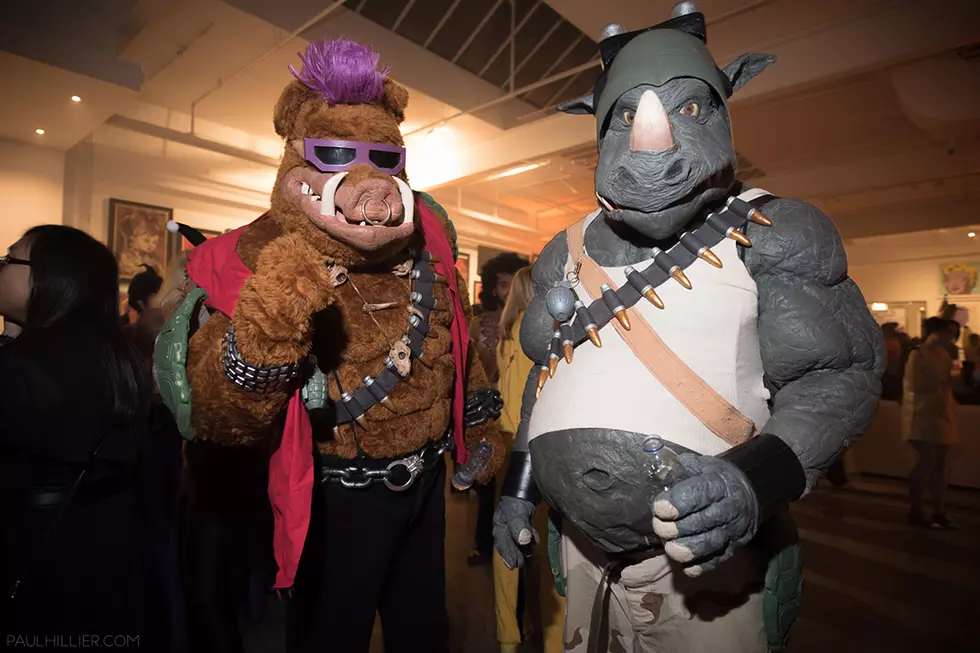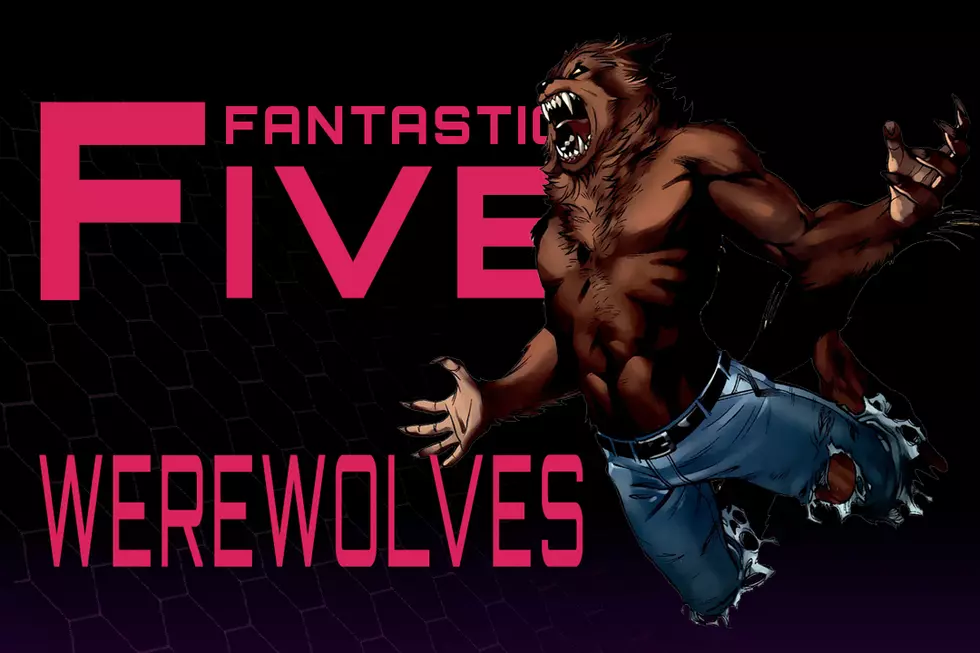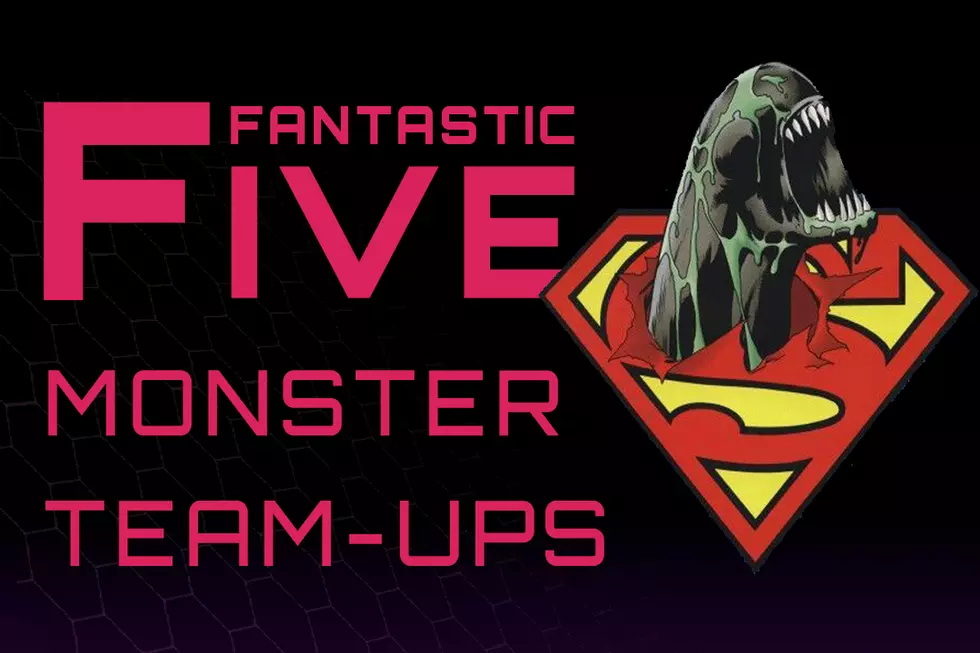
Ask Chris #168: (Mad) Science vs. (Spoooooky) Magic
Q: Would you rather your vampires and other monsters explained through magic, religious, or scientific contexts? --@CineastBenRowe
A: You know, Benny, I was all set to dive into another question I had this week about what was the best Ghost-Type Pokémon, but the more I looked at the questions I was getting, the more this one stuck in my head. I guess you could say it... haunted me. Haunted me like a Gengar, which, while actually a dual-type Ghost/Poison Pokémon, definitely qualifies and is really pretty awesome and creepy when you start reading all the stuff about how it was originally intended to be a ghostly doppelganger of Clefairy back before kids decided that they liked Pikachu about a thousand percent more than any other Pokémon. I've had a keychain of one since the tenth grade.
Oh, right, your thing. It won't surprise you that I have a pretty definitive answer, but it might surprise you to find out what that answer is.
If you're a long-time Ask Chris reader -- or heck, if you've read Ask Chris before at all, because that particular column was way more popular than the one where I wrote Superman/Batman movie fanfic -- you might recall that I once spent a couple thousand words explaining why I like Scooby-Doo. The short version is that despite the talking dog, it's a secular humanist blueprint for thinking your way around superstitions. It teaches kids to question what they believe in and look for the reasons behind them, and shows that they can always find that reason. There's even a little bit of hopeful agnosticism in some versions, as they're continually looking for ghosts and phantoms and Wolfmans and just, you know, never actually finding them because they don't exist.
It doesn't always work out so well in practice -- like only 10% of what is collectively known as Scooby-Doo is actually any good -- but it's something that's really important to me as a fan of the franchise. It's at the the point that, much as I think we all love Vincent Van Ghoul, I consider anything that actually does have real ghosts and monsters in it to be hot garbage that I have absolutely no time for. With all that said, you might think that I apply that same kind of logic to all entertainment, and that I can only really get into a story of the supernatural when all the spooks and haints are justified by extremely tenuous science.
Truth is, I hate that stuff.
Well, "hate" might be a strong word. There are definitely stories that work the "monsters aren't really monsters" premise in a way that's really enjoyable, but generally speaking, there's not a whole lot that bores me faster than when a story starts drifting into explaining how there's nothing supernatural about the supernatural, it's all just science that actually makes less sense than the magic it's taking the place of. I might be a hard-line science partisan here in the real world, but all those scenes where someone yammers on about how vampires just have a virulent form of porphyria, or how werewolves are, I dunno, just dudes with a bunch of back hair are a straight up snooze.
Now that I'm thinking of it, it feels like this is a subset of another, slightly larger problem that I have with a lot of stories where supernatural creatures show up and then stand around explaining how real [monster type, usually vampires] aren't like all those movie [monsters] and they're going to tell you how the real [monsters] work. It happens all the time, and while I get the idea of wanting to use a vampire without having to deal with every single piece of folklore that's been batted around over the past couple centuries, it pulls me right out of the story every time it happens. It's this weird bit of world-building that the creators prioritize so they can tell the story they want, when really, I'm pretty sure you can just throw some monsters in there and get away with dropping everything but the big stuff that people actually care about. It's not a rookie mistake, either -- Garth Ennis, a guy I'd put forward from 1995 to 2005 as being the best comic book writer in the industry, does it in at least two comics that I can think of.
It's all just part of trying to get rules in place so that you can build things around the rules, rather than using them as plot elements.
The Blade films are a perfect example. David Goyer's many later sins notwithstanding, I like those movies a lot, but in a lot of ways, I like them in spite of the direction they went with all the supernatural elements that, when you get right down to it, really ought to be part of a franchise that had its start in Tomb of Dracula. The blood-filled fire sprinklers and Triple H chaperoning a vampire pomeranian are fine, but when Wesley Snipes starts hissing about how they're about to fight a bunch of vampires with ultraviolet flashlights, that's one of the dumbest things I have ever seen in any movie. And as the record will show, I have seen a lot of dumb movies.
Stuff like that happens all over the place, and most of the time, it's just unnecessary, for the simple reason that these are stories about magic, and magic is already stories.
Kieron Gillen writes about magic better than just about anyone else in comics, and in his Ares miniseries from Marvel comics, he sums up my preferred approach to the supernatural in one of the most elegant and enjoyable ways I've ever seen. Ares, who was then one of the Dark Avengers, leads a team of SHIELD agents down into a secret base belonging to Hydra, the terrorist organization. A bunch of things go horribly wrong, which they probably would've expected when they saw all the Hydra soldiers reduced to skeletons, and one of the things that happens is that Ares ends up planting all the soldiers' teeth in the ground, which then each sprout into fully-armed skeletal warriors. The reason? That's what the teeth of the Hydra -- the one from Greek mythology -- do in the story of Jason and the Argonauts.
One of the soldiers mentions that it doesn't make sense, and Ares responds quite simply by telling him that it doesn't have to make sense. It's magic, and it makes more than sense.
That's the way I like to think of the supernatural, especially in superhero comics that have an anything-goes attitude towards mythology, where Greek gods and Norse gods can hang out with a Sorceror Supreme who spends his time battling elder things from the Hyborian Age and they occasionally deal with demons from actual Roman Catholic Hell that burst up through the streets of New York with alarming frequency. In a universe where that's all true, then the supernatural has its own kind of truth. Magic is symbolism, it's a story that becomes real in the telling, and it has its own set of rules that make perfect sense as long as you're looking at them the right way, in the context that supports it.
To get back to the Blade example, it's not that sunlight hurts vampires because they have skin that's sensitive to UV radiation, it's because daylight is less scary than nighttime. You can't see what's going on in the dark, so there could be something out there that'll hurt you, but in the day, you can have a good look around and, nope, no fangs trying to drain your life out through your neck holes. It's that simple, and there's a language to it that's inherently interesting, just in the way that there's a language of superheroics that we all learn from reading the genre.
Incidentally, while we're on the subject, vampires and wooden stakes are also an interesting study in how this stuff evolves in pop culture. Symbolically, the reason that you're supposed to pound a wooden stake into a vampire is because you're literally nailing a dead thing down so that it can't get up and cause a ruckus. The trope has evolved in pop culture to the point where you have Buffy just ramming chair legs through rib cages and calling it a night, but by and large, that symbolism is still there underneath it all. It follows that peculiar brand of logic and symbolism that you get with superstition in a way that, to throw it back at the original version of Blade one more time, going after 'em with wooden knives just doesn't.
Again, this is all just generalizing. There are plenty of stories that I like that treat the supernatural as just a weirder branch of science, and zombie stories in particular are unique in that while I generally prefer vague sciencey reasons to mystical ones, it never really matters what the cause of the whole thing is. The entertainment there is found in how things play out, not what their origins are, but that's because the monsters themselves aren't really all that interesting. Vampires, werewolves and all that other stuff that Hellboy fights tend to have a pretty rich history that's fascinating on its own, and only becomes more so when it starts interacting with other things, because it's built as a story. There are bits and pieces to be interpreted, histories and ideas about what silver and moonlight represented to the culture, and what people were afraid of back before they had light bulbs. It's inherently interesting, to the point where even exploring how it doesn't apply can yield some pretty interesting results, if you do it right.
Take that stuff out, and generally speaking, you're really just taking the story out of the story.
Ask Chris art by Erica Henderson. If you’ve got a question you’d like to see Chris tackle in a future column, just send it to @theisb on Twitter with the hashtag #AskChris.
More From ComicsAlliance









